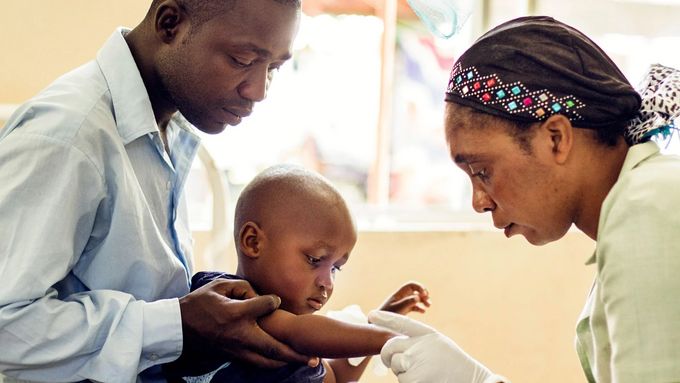Global progress against malaria has stagnated and novel medical interventions are urgently needed. In a new publication, researchers from Swiss TPH and the Gates Medical Research Institute describe how modelling evidence is crucial for accelerating the development of new malaria vaccines, monoclonal antibodies and chemoprevention. Results were published today in Communications Medicine from Nature.

Development of novel interventions for malaria prevention must be accelerated to meet current and future needs. Photo credit: Matthis Kleeb
With increasing threats of malaria drug and insecticide resistance, there is now a need for novel malaria interventions to improve public health.
According to the study published in Communications Medicine, using mathematical modeling to inform the development of new interventions, such as vaccines, can help accelerate progress in the fight against malaria. The models can provide insight into which characteristics of an intervention are most important for public health impact, and support decision-makers early on in the product development pipeline.
While clinical evidence and expert opinion often inform decision-making around malaria interventions, integrating modelling evidence is equally as important.
“Modeling evidence can guide and accelerate development of new malaria vaccines, monoclonal antibodies and chemoprevention," said Narimane Nekkab, Senior Scientific Collaborator and first author of the study. “By integrating modelling evidence early and iteratively into the development process, we can link product characteristics with expected public health outcomes and provide quantitative evidence to support selection criteria requirements and early endorsement by decision-makers.”
A collaborative framework to accelerate development
Global funders, regulatory agencies, and researchers are expanding their pipelines for next-generation medical interventions for malaria prevention, guided by reference documents for candidate selection and investment decision-making in research and development (R&D). As the malaria community moves forward to invest in next-generation interventions, guidance documents are crucial for candidate section and decision-making.
“Prioritisation should be given to establishing a comprehensive evidence base to inform guidance documents and support selection of the most promising candidates, thus accelerating the development of novel medical interventions to prevent malaria,” said Melissa Penny, Head of Disease Modelling unit and senior author of the study. “Guidance documents have an important role to play in shortening R&D timelines and reducing costs, targeting priority use-cases and unmet needs, while ensuring selected candidates have a greater impact. It is very exciting that modelling will also play a role to inform parts of these guidance documents.”
The proposed framework considers the unmet health needs that the new interventions will address, the priority target groups, and questions from communities and experts. It also considers the different types of mathematical models that can link the efficacy and duration of an intervention to public health outcomes.
The paper provides specific examples, such as how modelling can support translating clinical trials for novel therapeutics like monoclonal antibodies and how to define public health impact goals that are required to guide the development of interventions and the need to adapt their use cases with new clinical evidence. While the framework focuses on malaria prevention tools, it can also be expanded to malaria treatment, vector control and to other diseases.
About the study
Integrating the best available evidence to accelerate R&D of novel tools requires collaborative efforts between diverse stakeholders. Discussions and feedback from a meeting of 60 representatives from academia, product development, international organisations and malaria-endemic countries took place in June 2021 was vital for guiding the research questions within the study. The authors thank the Bill and Melinda Gates Foundation for supporting this ongoing work.